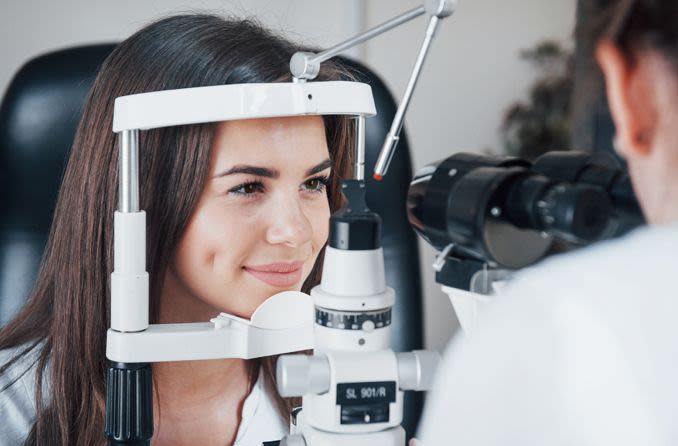All Categories
Featured
Table of Contents

Regular eye assessments are vital for keeping excellent vision and identifying potential eye health issues early. The regularity of these tests can differ considerably based on a person's age, way of life, and overall health. Understanding the suggested routine for eye exams can assist ensure that individuals of every ages get suitable care and tracking for their eye health and wellness.
Newborns and Toddlers (0-2 Years)
For infants and toddlers, eye exams are vital for discovering any possible vision issues early. The American Academy of Ophthalmology recommends that a kid's very first eye test need to happen at around six months old. Throughout this first browse through, the eye treatment specialist will examine the kid's visual development and check for any kind of obvious eye problems.Following this first examination, it is advised that children have one more eye exam at age three. This see will concentrate on assessing the kid's general visual function, including eye positioning and the capability to track objects. If no problems are detected, the next examination must be set up prior to the youngster begins college, commonly around age 5 or 6.
School-Aged Children (6-18 Years)
Normal eye exams need to be set up every one to 2 years once youngsters get to school age. Vision is vital for finding out and advancement, and lots of colleges perform vision testings. However, these screenings do not replace an extensive eye examination by an eye care expert.For children associated with sports or tasks needing significant visual emphasis, yearly eye examinations might be recommended. Furthermore, if a youngster displays signs of vision issues-- such as difficulty checking out, scrunching up your eyes, or frequent headaches-- a visit to the eye medical professional need to be arranged asap.
Young Grownups (19-39 Years)
Youthful grownups normally have fewer vision modifications than older age groups, but regular eye exams remain essential. The basic recommendation is to arrange an eye examination every 2 years throughout this duration. People with specific danger variables-- such as a family members history of eye disease, diabetes, or those who put on contact lenses-- must consider annual eye tests.Additionally, those that invest considerable time on electronic devices might experience digital eye stress. If signs and symptoms such as dryness, fatigue, or obscured vision happen, it may be smart to see an eye care professional earlier.
Adults (40-64 Years)
Grownups aged 40 to 64 should set up eye tests every one to 2 years. Eye exams can additionally aid detect other usual age-related conditions such as glaucoma, cataracts, and macular degeneration.If people in this age have risk aspects such as high blood stress or diabetic issues, they may require more frequent assessments to check their eye wellness closely.
Elders (65 Years and Older)
For elders, regular eye examinations come to be also much more important. The American Optometric Association suggests that individuals matured 65 and older have an eye examination at the very least when a year.Conclusion.
Comprehending the proper timetable for eye tests based on age is important for maintaining ideal eye health throughout life. By adhering to these standards and consulting with an eye care specialist, people can take positive steps toward protecting their vision and overall health and wellness.Latest Posts
Get Enterprise’s Best Eye Health Services at Vision Center South Today
Published May 03, 25
2 min read
Vision Center South - Enterprise’s Premier Eye Care Provider
Published Apr 30, 25
2 min read
Wetumpka Eye Exams & More at Vision Center South
Published Apr 29, 25
2 min read